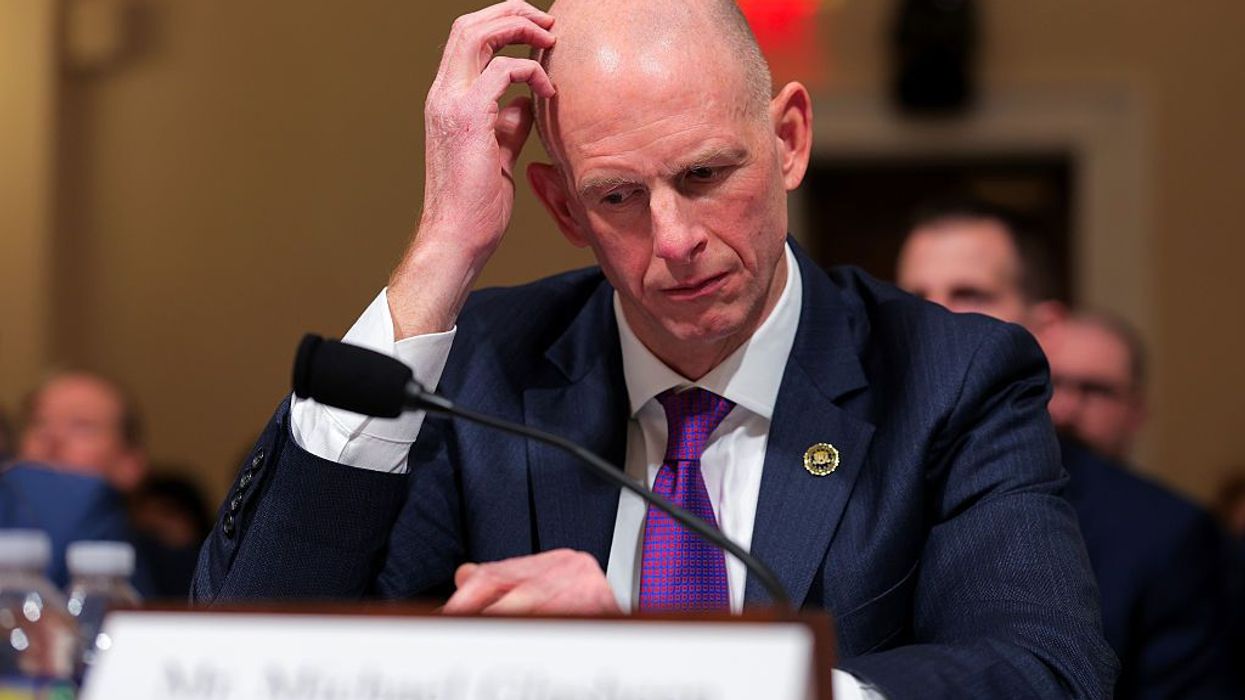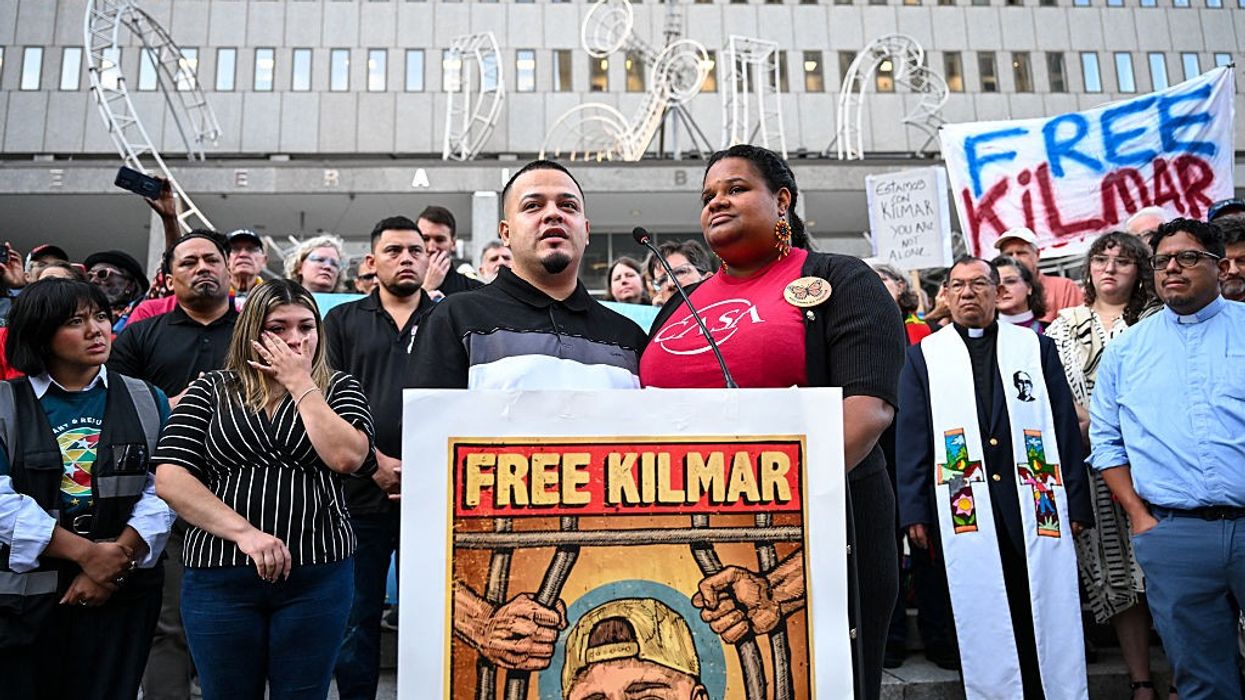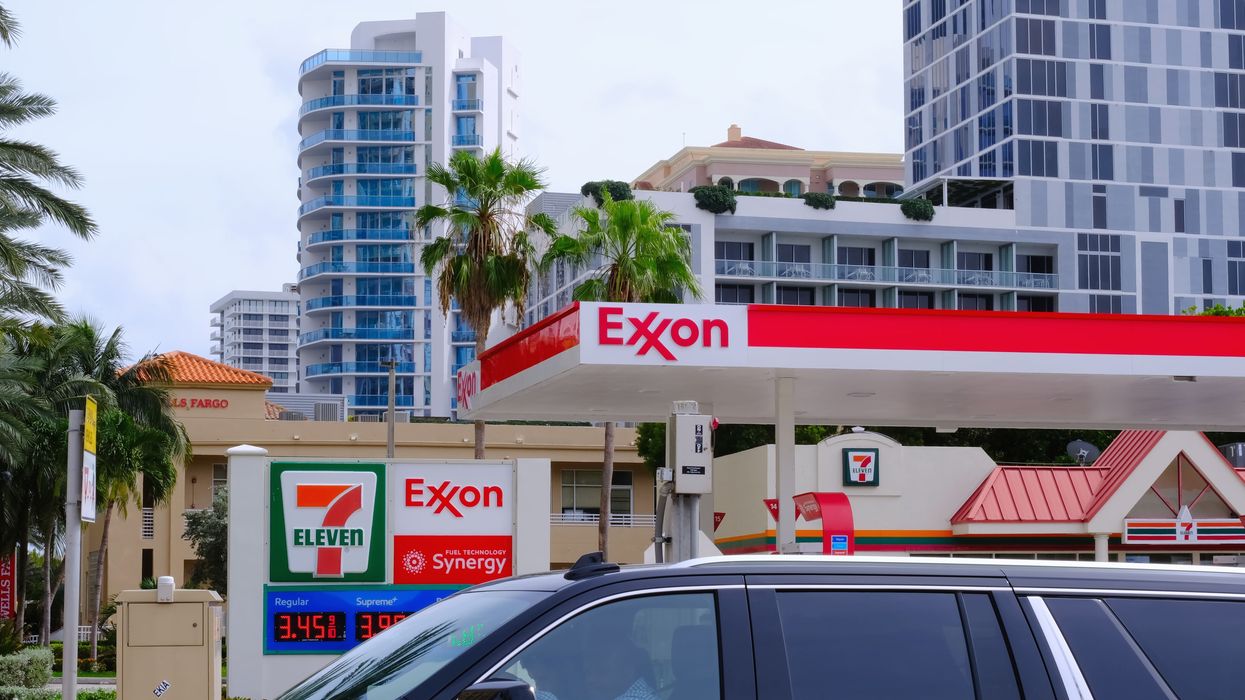November, 14 2011, 03:17pm EDT

New Report Chronicles Impact of State Funding Cuts on Public Media
On the Chopping Block: State Budget Battles and the Future of Public Media examines public media cuts in 24 states.
WASHINGTON
On Monday, Free Press released a new report showing state support for public broadcasting is declining at an alarming rate.
On the Chopping Block: State Budget Battles and the Future of Public Media is a first-of-its-kind inventory of state funding for public broadcasting. Free Press found that since 2008, 24 states have cut more than $85 million from public broadcasting budgets. And the numbers are even bleaker when placed in a historical context: If the appropriations had remained level with the figures from 2008, more than $200 million in additional funding would have been allocated in these 24 states during this four-year period.
Read the executive summary and full report here: https://www.savethenews.org/State_Funding.
"Public broadcasters are being expected to weather enormous cuts that are way out of line with reductions in state budgets," said Josh Stearns of Free Press, who co-authored the report with Mike Soha. "In most cases state budgets are seeing single-digit percent decreases, while public broadcasters are facing dramatic double-digit cuts, if not total elimination of their funding. This suggests that many of these cuts are being made to score political points, not to balance budgets."
In this year's round of state budget negotiations alone, state governments nationwide have slashed nearly $30 million from public media budgets. Some states have even implemented aggressive phase-out plans that could mean the loss of tens of millions more in the next few years.
See infographics on cuts to individual states at https://www.savethenews.org/State_Funding.
* Florida, New Hampshire, New Jersey and Pennsylvania have cut their entire state appropriations for public broadcasting.
* Since 2008, Alabama, Indiana, Kansas, South Carolina and Virginia have seen a nearly 50 percent or greater cut in state support.
* Over the same four-year period, stations in Georgia, Mississippi, North Carolina, Ohio and Oklahoma have seen their state appropriations reduced by more than 25 percent.
* Idaho, Indiana, Kansas, Maine and South Carolina have faced threats of multi-year phase-outs of all state funding.
"State budget cuts threaten to undermine many stations' abilities to produce local content and reach every corner of the nation," Stearns said. "Public broadcasting in its many forms is essential information infrastructure. In many communities, public radio and TV connect people to vital news, information and services. But dwindling state funding means that public media in America is already doing more with less. Further cuts at the federal or state level could be disastrous."
Free Press was created to give people a voice in the crucial decisions that shape our media. We believe that positive social change, racial justice and meaningful engagement in public life require equitable access to technology, diverse and independent ownership of media platforms, and journalism that holds leaders accountable and tells people what's actually happening in their communities.
(202) 265-1490LATEST NEWS
‘Total Amateur Hour’: FBI Official Says Antifa Is #1 Threat in US—But Can’t Say Where, Who, or What It Is
"Just a complete admission here that the entire ‘antifa’ threat narrative is totally manufactured by this administration," said one critic.
Dec 11, 2025
A top FBI official struggled on Thursday to answer basic questions about antifa, a loosely organized collective of anti-fascist activists that he labeled the top terrorist threat facing the US.
Michael Glasheen, operations director of the FBI's National Security Branch, testified before the US House Committee on Homeland Security that antifa was "the most immediate violent threat" facing Americans today when it comes to domestic terrorism.
But when Rep. Bennie Thompson (D-Miss.), ranking member of the Homeland Security Committee, asked Glasheen for specifics about this purportedly dire threat, he mostly came up empty.
"So where is antifa headquarters?" Thompson asked him.
Glasheen paused for several seconds and then said, "What we're doing right now with the organization..." before Thompson interrupted him.
"Where in the United States does antifa exist?" asked Thompson.
"We are building out the infrastructure right now," Glasheen replied.
"So what does that mean?" asked a bewildered Thompson. "I'm just, we're trying to get information. You said antifa is a terrorist organization. Tell us, as a committee, how did you come to that? Whether they exist, how many members do they have in the United States as of right now?"
"Well, that's very fluid," Glasheen said. "It's ongoing for us to understand that... no different from al-Qaeda and ISIS."
Thompson again interrupted and tried to make Glasheen answer his original question.
"If you said antifa is the No. 1 domestic terrorist organization operating in the United States," he said, "I just need to know where they are, how many people. I don't want a name, I don't want anything like that. Just, how many people have you identified, with the FBI, that antifa is made of?"
"Well, the investigations are active..." Glasheen said.
Thompson then became incredulous.
"Sir, you wouldn't come to this committee and say something you can't prove," he said. "I know you wouldn't do that. But you did."
GLASHEEN: Antifa is our primary concern right now. That's the most immediate violent threat we're facing
BENNIE THOMPSON: Where is antifa headquartered?
GLASHEEN: ... ... ... we are building out the infrastructure right now
THOMPSON: What does that mean? pic.twitter.com/FBzRJ5dCBj
— Aaron Rupar (@atrupar) December 11, 2025
Many observers were stunned that Glasheen appeared to know so little about what he proclaimed to be the top domestic terrorist threat facing the US.
"Total amateur hour in US law enforcement," remarked Democracy Docket news editor Matthew Kupfer, "where the No. 1 terror threat is an organization that does not formally exist and a career FBI official is dancing around before a congressional committee trying to make the Trump strategy sound legit."
Zeteo editor-in-chief Mehdi Hasan argued that Glasheen's testimony was proof that the administration was simply concocting domestic terrorism threats with zero basis in reality.
"Wow," Hasan marveled. "Just a complete admission here that the entire ‘antifa’ threat narrative is totally manufactured by this administration."
Fred Wellman, a Democratic congressional candidate in Missouri, wondered how many actual dangerous criminals are running free while the FBI focuses on taking down an organization that it apparently knows nothing about.
"This would be comical if there wasn’t real world impact from this idiocy," Wellman wrote. "We have real crimes and real threats and they are chasing a fake 'organization' for politics."
Democrats on the House Homeland Security Committee also piled on Glasheen, citing his testimony as evidence that the Trump administration is completely unserious about law enforcement.
"If your 'top threat' has no headquarters, no organization, and no definition then it’s not a top threat," they posted on social media. "The Trump administration is ignoring real threats, and the American people see right through it."
Keep ReadingShow Less
'A Forceful Stand for Our Constitution': Judge Orders Release of Kilmar Ábrego García
Judge Paula Xinis found that the Trump administration redetained the Salvadoran father of three "without lawful authority."
Dec 11, 2025
A federal judge on Thursday ordered the immediate release of Kilmar Ábrego García—who was wrongfully deported to El Salvador by the Trump administration earlier this year—from US Immigration and Customs Enforcement custody.
"Since Ábrego García's return from wrongful detention in El Salvador, he has been redetained, again without lawful authority,” US District Judge Paula Xinis wrote in her ruling. “For this reason, the court will grant Ábrego García's petition for immediate release from ICE custody.”
In early April, Xinis—an appointee of former President Barack Obama—ordered the Trump administration to facilitate Ábrego García's return to the United States after he was deported in March to the abuse-plagued Terrorism Confinement Center (CECOT) maximum security prison in El Salvador. This, after the US Department of Justice (DOJ) admitted in a court filing that Ábrego García was wrongfully deported due to what it called an "administrative error."
The US Supreme Court also weighed in on the case in favor of Xinis' ruling. However, the Trump administration refused to comply with the judge's order, arguing that it had no legal obligation to return Ábrego García to the US and could not force El Salvador's government to free him.
The DOJ dubiously contended that Ábrego García—a 30-year-old Salvadoran father of three who entered the US without authorization when he was a teenager—was a member of the gang MS-13, an allegation based on a statement from an anonymous police informant. The Trump administration deported him despite a judge's 2019 ruling that he could not be removed to El Salvador because he could be tortured there.
An attorney representing Ábrego García said at the time that his client suffered beatings and "psychological torture" while imprisoned at CECOT.
Ábrego García was transferred to a lower security Salvadoran prison before being sent back to the US on June 6 to face DOJ charges for allegedly transporting undocumented immigrants, to which he pleaded not guilty. He was immediately taken into custody and sent to an immigration detention facility in Tennessee.
On July 23, federal Magistrate Judge Barbara Holmes in Tennessee ruled that Ábrego García must be released from custody pending his trial. That same day, Xinis issued a simultaneous ruling in Ábrego García's wrongful deportation case blocking ICE from immediately seizing him once released in Tennessee and ordering the government to provide at least 72 hours' notice before attempting to deport him to any third country.
As Ábrego García was released on August 22, the US Department of Homeland Security (DHS) informed him that he could be deported to Uganda—one of several nations to which the administration has sought to send him. A bid by Ábrego García to reopen a previous bid for asylum in the US was denied in early October by an immigration judge.
Ábrego García is currently being held in an immigration detention center in Pennsylvania. Responding to Xinis' latest ruling, DHS spokesperson Tricia McLaughlin said Thursday that "this is naked judicial activism by an Obama-appointed judge."
"This order lacks any valid legal basis and we will continue to fight this tooth and nail in the courts," she added.
Advocates for Ábrego García welcomed Thursday's ruling.
"For months, the Trump administration has sought to deny Kilmar Ábrego García his rights to due process and fair treatment by our justice system," US Sen. Chris Van Hollen (D-Md.)—who met with Ábrego García in El Salvador in April—said on social media.
"Today’s ruling by Judge Xinis—requiring the government to immediately release him—is a forceful stand for our Constitution and all of our rights," he added.
Lydia Walther-Rodríguez, chief of organizing and leadership at CASA, hailed what she called "a moment of joy and relief."
“Kilmar finally gets to return home to his family, where he belongs," she said. "No one should be separated from their loved ones while fighting for justice.”
Keep ReadingShow Less
How the Past 25 Years of Big Oil's Lie-Filled Ads Have Delivered 'Climate Catastrophe'
"Big Oil's climate deception has evolved from lying about the problem to lying about solutions," said the head of the Center for Climate Integrity.
Dec 11, 2025
A group that supports communities' efforts to hold Big Oil accountable for decades of deception related to the climate emergency released a report on Thursday after reviewing more than 300 advertisements from four fossil fuel giants since 2000.
Over the past decade, people across academia, civil society, Congress, and journalism have examined the evolving lies of oil and gas giants, which have long been accused of using Big Tobacco's playbook.
"Using evidence from congressional investigations, advertising, and public relations documents, independent journalism, and watchdog reports," the new analysis states, "Big Oil's Deceptive Climate Ads explains how the pervasive and misleading messaging in BP, Chevron, ExxonMobil, and Shell’s advertisements has not only misrepresented the companies' business practices, but, over the span of two and a half decades, effectively cultivated a larger, deceptive narrative that oil and gas companies are leaders in the fight against climate change, when in fact they are actively fueling climate catastrophe around the globe."
The Center for Climate Integrity (CCI) report notes that "while oil and gas companies and their trade associations publicly denied the risks and realities of climate change for decades, growing public understanding of climate science around the turn of the 21st century eventually meant that outright denial was no longer sufficient to protect their bottom line."
NEW: For 25 years, four oil giants sold false climate promises through deceptive ad campaigns.Our report examined 300+ ads from BP, Chevron, Exxon, and Shell from 2000-2025. Together they push a false narrative that Big Oil is leading climate solutions. In reality, they're fueling catastrophe.
[image or embed]
— Center for Climate Integrity (@climateintegrity.org) December 11, 2025 at 8:54 AM
"During this period, major oil and gas companies began to reposition themselves publicly as active partners in the fight against climate change, even while they continued to increase fossil fuel production, invest minimally in clean energy, oppose energy efficiency initiatives, and promote technically or economically infeasible solutions," the document details.
"To convey this misleading image to the public," the publication continues, "Big Oil companies carried out extensive advertising campaigns, inundating the public with messaging that creates an overall deceptive portrait of their true role in the climate crisis."
CCI sorted the ads across seven categories of deception: emissions reductions, renewables investments, individual action, natural gas, carbon capture and storage, hydrogen, and algae biofuels. The group found that "these skillfully crafted advertisements often include partially truthful statements but omit relevant contextual information to create an inaccurate or incomplete representation of the initiative, product, or technology they promote."
"For instance, advertisements that portray natural gas as beneficial for the climate because it 'lowers emissions' are misleading by omission, because although gas produces less CO2 and other pollutants than coal when burned, it still emits significant quantities of greenhouse gases, including CO2 and methane, that pose a serious threat to the climate," the publication points out. "This tactic, known as paltering, has been at the core of Big Oil companies' climate advertisements for the past 25 years."

The report also acknowledges the public response: "Market research shows BP's 'Beyond Petroleum' campaign increased brand favorability among US and UK audiences, leading viewers to associate the oil giant with efforts to reduce carbon emissions at a time when it was the largest producer of fossil fuels in the UK and North America. Chevron's 'Real Issues' campaign, which promoted its energy conservation initiatives and renewables investments, improved the company's reputation among ad-exposed audiences."
The publication comes as the climate emergency continues to worsen, with deadly impacts, and world leaders fail to take adequate steps toward "a just, equitable, fossil-free future." Meanwhile, communities continue to call for not only action to limit future global warming but also consequences for the big polluters that created the global crisis.
The report similarly concludes that "oil and gas companies—including BP, Chevron, ExxonMobil, and Shell—must be held accountable for the damages their deception has caused. As climate accountability lawsuits filed by communities across the US make their way through the courts, ongoing advertising deception by the four oil majors' in this report demands further scrutiny and investigation."
CCI president Richard Wiles echoed that demand in a Thursday statement: "Big Oil's climate deception has evolved from lying about the problem to lying about solutions. For two-and-a-half decades now, these companies have sold the public a false and misleading image of their industry as working to solve the climate crisis, all while doubling down on fossil fuels and making the problem worse."
According to Wiles, "Any business that floods consumers with such brazenly deceptive advertising must be held accountable."
Keep ReadingShow Less
Most Popular


